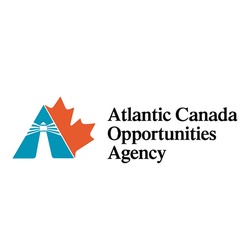
New Brunswick Digital Media Tax Credit
At a glance
- Up to 30% of project cost
- Closing date : May 17, 2024
- Information and cultural industries
- Nova Scotia
- All legal structures
- All revenue ranges
- All organization sizes
- Canadians
Overview
Refundable tax credit of 50% for local labour costs or 25% of total funds spent in Nova Scotia in the development of an interactive digital media product.
Activities funded
The Nova Scotia Digital Media Tax Credit supports the creation and development of eligible interactive digital media products within the province. These products are designed to educate, inform, or entertain users by providing an interactive experience through the combination of application and data files in a digital format.
- Development of video games that allow users to control actions and engage interactively with the game environment.
- Creation of educational software that adapts to a user's learning style and provides tailored feedback based on user interaction.
- Production of informational products that offer users interactive means to engage with content through text, sound, and images.
- Development projects that qualify for an additional bonus by being situated within eligible geographic areas of Nova Scotia.
Eligibility
Eligibility for the Nova Scotia Digital Media Tax Credit requires the corporation to meet specific criteria.
- The corporation must be a taxable Canadian corporation, meaning it was incorporated in Canada, either federally or in a province.
- The corporation must have a permanent establishment in Nova Scotia, typically a fixed place of business, assets, and personnel in the province.
- The corporation cannot be a prescribed labour-sponsored venture capital corporation under the Income Tax Act (Canada).
- The corporation may be controlled by either foreign or Canadian owners, with no restrictions on size, market capitalization, or number of employees.
- The corporation must demonstrate ownership of the property rights of the product or be authorized by the product owner through a Certificate of Election form if it does not own the rights.
Who is eligible?
The Nova Scotia Digital Media Tax Credit (DMTC) is available to corporations developing interactive digital media products, provided they meet certain criteria established by the Nova Scotia Department of Finance and Treasury Board.
- Corporations must be taxable Canadian corporations as defined by Canadian tax legislation.
- Corporations need to have a permanent establishment within Nova Scotia.
- The corporation must not be designated as a prescribed labour-sponsored venture capital corporation.
- The control of the corporation can be either by foreign or Canadian entities, with no restrictions on size.
- The corporation must own the rights to the developed product or be authorized by the owner to use them.
Who is not eligible
This grant is not available to certain companies and industries based on their main activity and status. The restrictions are in place to focus support on specific eligible products and uses of technology.
- Labor-sponsored venture capital corporations as prescribed under the Income Tax Act (Canada).
- Companies developing operating systems or application software such as word processing or spreadsheets.
- Businesses creating products for interpersonal communications, like cell phone or email software.
- Organizations producing products primarily for advertising, selling, or promoting goods and services.
- Companies involved in creating products contrary to public policy, such as those with pornographic content or inciting hatred.
Eligible expenses
Eligible projects for the Nova Scotia Digital Media Tax Credit focus on the creation of interactive digital media products with the primary purpose of educating, informing, or entertaining users. These projects must involve the development of digital applications that enable user interaction with the content.
- Development of video games that allow user control and interaction.
- Creation of educational software providing adaptive learning experiences.
- Production of informational applications that engage users through interactive features.
Eligible geographic areas
The eligible geographical areas for the Nova Scotia Digital Media Tax Credit include regions outside the Halifax Regional Municipality. Eligible businesses must have a permanent establishment in these designated areas.
- Everywhere in Nova Scotia except within thirty kilometers driving distance from Halifax City Hall in the Halifax Regional Municipality.
Selection criteria
The evaluation and selection criteria for the Nova Scotia Digital Media Tax Credit (DMTC) ensure that the corporation and product meet specific eligibility requirements related to corporate status, product type, expenditures, and geographic location. These criteria help determine whether a corporation qualifies for the tax credit and the applicable amount.
- The corporation must be a taxable Canadian corporation, as defined in subsection 89(1) of the Income Tax Act (Canada).
- The corporation must have a "permanent establishment" in Nova Scotia.
- The corporation must not be a prescribed labour-sponsored venture capital corporation under the Income Tax Act (Canada).
- The product must be an "interactive digital media product" whose primary purpose is to educate, inform, or entertain the user.
- The product must allow the user to interact meaningfully with the content.
- Qualifying expenditures must be directly attributable to the development of the eligible interactive digital media product and incurred and paid in Nova Scotia.
- For an additional regional bonus, the product development must occur within an "eligible geographic area of the Province".
- The corporation must demonstrate ownership of the property rights of the product, or be authorized by the product owner through a Certificate of Election.
- All applicable documentation, including expenditure reports, residency declarations, invoices, and certification reports, must be submitted as part of the application process.
How to apply
Optional Preliminary Application (Part A)
- Submit a Part A application for an advanced ruling on project eligibility.
- Receive an estimate of the potential tax credit.
- Note: This step is optional and not required to submit a Part B application.
Gather Required Documentation
- Complete the Application & Expenditure Report spreadsheet.
- Collect Declaration of Residency Forms for all employees listed.
- Prepare invoices for all third-party work completed, with required details included.
- Prepare Statements of Eligible Remuneration for relevant invoices.
- Obtain an Affidavit, Review Engagement Report, or Audit Report based on project budget.
- Include Articles of Incorporation and Memorandum of Association, if applicable.
- Include Shareholders Registry, if applicable.
- Prepare a corporate chart and Gantt Chart.
- Document the completed digital media product.
- Provide chain of title documentation, if necessary.
- Fill out the Exchange of Information Form.
Submit the Application
- Email the completed Application & Expenditure Report spreadsheet to the TFFRD.
- Send a signed and dated paper copy of the application to the TFFRD.
- Ensure all supporting documents are included with the application.
Await Confirmation and Processing
- Application will be processed by the TFFRD of the Department of Finance and Treasury Board.
- Corporations will receive tax certificates to claim with annual income tax filings.
- Applications can be submitted before product completion but may be subject to future review.
Additional information
The Nova Scotia Digital Media Tax Credit offers a refundable tax credit for eligible corporations developing interactive digital media products within Nova Scotia. It includes eligibility criteria, applications processes, and restrictions on product types and expenditures that qualify for the credit.
- The DMTC is not available for products primarily used as an operating system, application software, or for interpersonal communications.
- Products used primarily to present, promote, or sell goods or services are not eligible for the tax credit.
- Expenditures that can be claimed for Scientific Research and Experimental Development Tax Credit or Film Industry Tax Credit are not eligible for the DMTC.
- The eligible geographic area excludes areas within thirty kilometres driving distance from Halifax City Hall in the Halifax Regional Municipality.
- Part A applications provide an advanced ruling on eligibility but do not guarantee final approval.
- Applications must be submitted within thirty months of the end of the taxation year in which expenses were incurred.
- There are no administration fees required for processing DMTC applications.
- The Minister of Finance and Treasury Board may revoke tax credit certificates if the product is not completed within 36 months or if compliance issues arise.
- Corporations may recognize provincial contribution using "Produced with the assistance of the Nova Scotia Digital Media Tax Credit".
Frequently Asked Questions about the New Brunswick Digital Media Tax Credit Program
What is the New Brunswick Digital Media Tax Credit?
How much funding can be received?
Who is eligible for the New Brunswick Digital Media Tax Credit program?
What expenses are eligible under New Brunswick Digital Media Tax Credit?
Who can I contact for more information about the New Brunswick Digital Media Tax Credit?
Where is the New Brunswick Digital Media Tax Credit available?
Is the New Brunswick Digital Media Tax Credit a grant, loan, or tax credit?
More programs like this

Nova Scotia digital animation tax credit
Government of Nova Scotia
Nova Scotia digital media tax credit
Government of Nova Scotia
Invest Nova Scotia — Payroll Rebate
Government of Nova Scotia
Regional Economic Growth through Innovation (REGI) — Business Scale-up and Productivity — ACOA
Atlantic Canada Opportunities Agency (ACOA)
START Program
Government of Nova Scotia
Nova Scotia Film and Television Production Incentive Fund
Government of Nova Scotia
Creative Industries Fund in Nova Scotia
Government of Nova Scotia
Invest Nova Scotia — Investment
Government of Nova Scotia
Clean Leadership Summer Internships — Nova Scotia
Clean Foundation